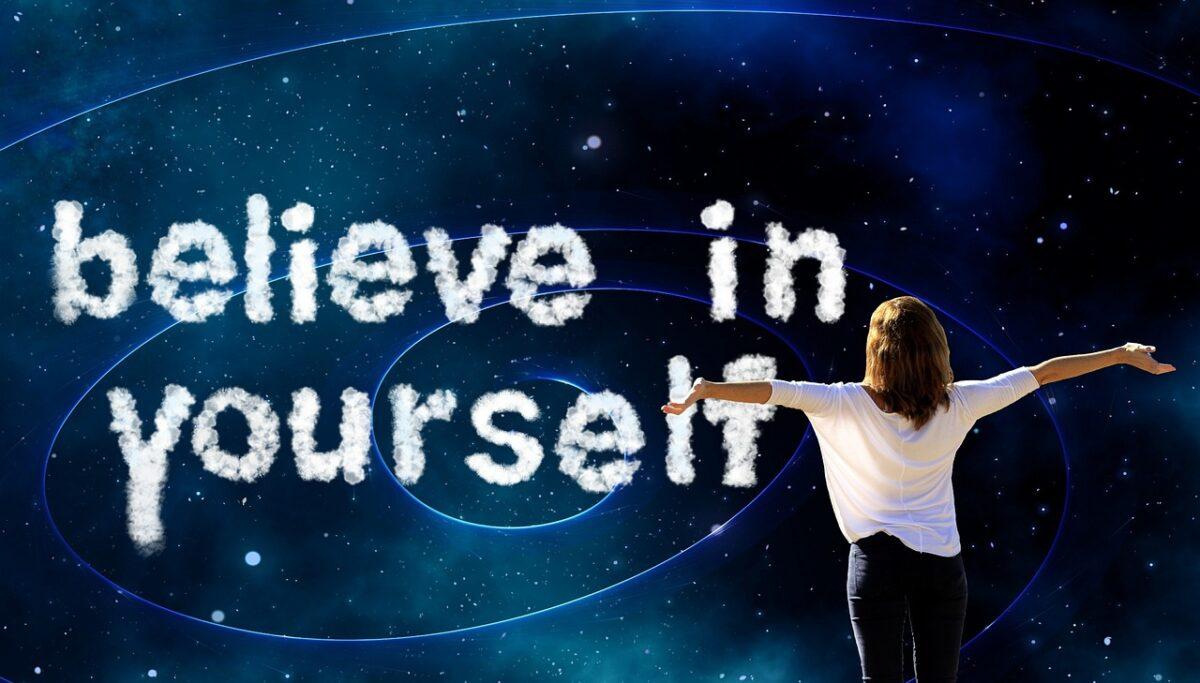
The phenomenon of feeling inferior to others is a common experience for many people. Whether it’s comparing ourselves to others’ achievements, physical appearances, or social skills, it’s easy to fall into the trap of thinking that others are better than us. But why do we feel this way? And how can we overcome it? This article delves into the psychology behind feeling inferior to others. It explores the role of social comparison, the tendency to evaluate ourselves based on others’ success, as well as the impact of our own self-perception on this process. The article also examines the potential consequences of this thinking pattern, such as lowered self-esteem and motivation, and how it can lead to negative behaviors like jealousy and resentment.
However, the article also offers hope and guidance for those struggling with feelings of inferiority. It highlights the importance of self-compassion and acceptance, reminding readers that we are all unique individuals with our own strengths and weaknesses. It also suggests practical strategies for breaking the cycle of comparison and building a healthier self-image.
It sheds light on a common struggle and provides readers with the tools to overcome it. By understanding the psychology behind feeling inferior and implementing positive practices, we can learn to appreciate our own worth and stop comparing ourselves to others.
Root cause of Inferiority Complex : Feeling that others are better than us
#1 Urbanization : From Substance to Style
The prevalence of the inferiority complex is increasing, and many people experience feelings of inadequacy when they compare themselves to others. This can be attributed, in part, to a shift in societal values towards extroverted behavior and the prioritization of style over substance. Prior to the industrial revolution and the rise of urbanization, people lived in close-knit communities and were familiar with each other’s abilities and character. Professions were often inherited from previous generations, and training occurred on the job. However, with the migration of people to cities, job qualifications and abilities became more important than familial connections. As a result, individuals had to market themselves to strangers to secure employment. The ability to make a strong first impression and project a certain appearance became increasingly important, leading to a culture of competition focused on external qualities rather than core character traits such as honesty and integrity.

This emphasis on superficial qualities has led to a society in which people are constantly comparing themselves to others and feeling inadequate. Rather than focusing on developing core competencies, individuals prioritize their appearance and social skills in order to succeed in the job market. However, this mindset can lead to negative behaviors such as jealousy and resentment towards others who are perceived to be more successful.
#2 Rise of ‘I am the Lord of all I survey’ mindset
Our mind can be a powerful ally or a formidable adversary. In today’s society, urbanization and the promotion of cutthroat competition have conditioned individuals to view success solely in terms of material possessions, leading to a mindset that values conquest and domination over collaboration and personal growth. This attitude ignores the fact that everyone has unique skills and strengths that are best suited to certain areas of life. For example, a skilled warrior may excel on the battlefield but struggle in a medical setting, and vice versa.
It is essential to avoid judging oneself or others based on superficial achievements and to recognize that success takes many forms. This requires a shift in mindset away from the belief that “I am the Lord of all I survey,” and towards a more open and humble approach that acknowledges and celebrates diversity. When individuals cultivate this mindset, they can avoid the demoralizing setbacks that come with pursuing unattainable goals, which can lead to feelings of inadequacy, resentment, and jealousy. These negative emotions can even escalate into depression, eroding one’s sense of self-worth and diminishing the unique qualities that once made them special.

By embracing a more holistic and accepting perspective, individuals can unlock their full potential and build healthier relationships with themselves and others. Success is not just about the accumulation of material possessions, but also about personal growth, fulfillment, and making meaningful contributions to the world. It is essential to focus on cultivating one’s unique talents and strengths and to celebrate the successes of others, recognizing that we all have something valuable to offer.
Overcoming your Inferiority Complex and Low Self-Esteem
#1 Aligning with our Inherent Nature
Each individual possesses distinct talents and abilities that are God-given and can be developed with the right mindset and guidance, leading to significant accomplishments. As parts and parcels of God, we are cherished by Him as His beloved children and have inherited unique qualities from Him. It is crucial to align our actions with our inherent nature and seek out vocations that suit our strengths, allowing us to thrive and reach our full potential.
It is crucial for us to acknowledge the fallacy of a one-size-fits-all definition of success. In certain societies, specific professions are glamorized, and individuals are conditioned to believe that success can only be achieved through these predetermined career paths. In India, for instance, becoming an engineer or doctor is often seen as the epitome of success. However, it is essential to understand that such societal constructs may not align with an individual’s interests, abilities, or aspirations. For instance, a student may pursue engineering merely because of societal pressure, while their true passion and talent may lie in fields such as poetry or art. It is crucial to introspect and identify one’s innate abilities, strengths, and interests and make career choices accordingly. Pursuing a profession that resonates with one’s unique abilities and inclinations is the key to achieving lasting satisfaction and success.
#2 We are not our Bodies
The ancient wisdom of the Vedic Scriptures tells us that our true essence is not our physical bodies, but rather we are spiritual beings journeying through different lifetimes in pursuit of spiritual enlightenment. During this journey, we may inhabit human bodies, or we may take on the form of other living beings. Our physical appearance may also vary greatly from one lifetime to the next, with differences in skin color, body type, and even gender. However, regardless of these external factors, we are all divine creations of God, guided by the law of Karma, which brings about consequences based on our past actions.

It is important to remember that our true identity is not determined by our external appearance or material possessions. Our ultimate goal in life should be to seek answers to our spiritual questions and to connect with God’s unconditional love. Pursuing a meaningful existence entails focusing on the development of our spiritual selves, rather than attaching ourselves to temporary, materialistic pursuits. This includes recognizing our inherent talents and strengths and utilizing them to make a positive impact in the world. Whether we are deemed attractive or not, wealthy or not, or whether we have inherited great riches, these are all insignificant in the grand scheme of our eternal spiritual journey.
#3 Live in Cooperation instead of Competition
Looking at things from a spiritual perspective, comparison is not only unnecessary but it can be detrimental to our growth. Instead, we are meant to live in cooperation and harmony with one another. It is important to first recognize that at our core, we are all spiritual beings and part of a larger family under the guidance of God. Each one of us has been given a unique position within this spiritual family, so there is no need to feel insecure about someone else taking our place.
As spiritual beings, we can trust that God loves us and cares for us, regardless of our external performance or personality traits. This understanding can bring a sense of security and acceptance that helps us let go of the need for comparison. When we realize that God’s love for us is unconditional, we can focus on cooperating with others rather than competing with them. This approach can lead to greater fulfillment and a more harmonious way of life.

#4 Try to Cultivate Selfless Love
Practicing selfless love is a rarity in our world. While we may witness it in the unconditional love of a parent for their child, most forms of love come with expectations and conditions. Selfless love is only bestowed upon others by an elevated soul. Such a person believes that God has given them a duty to serve and give without expecting anything in return. They do not seek personal gain or recognition for their actions. Instead, they see their actions as a service to God, using their skills to the fullest and pushing themselves to their limits. They perform their duty to the best of their ability, leaving the judgment of their actions to God. They do not anticipate any awards or acknowledgements from the people they help or love. The actions of such a rare soul are genuine expressions of selfless love.

tasmad asaktah satatam
karyam karma samacara
asakto hy acaran karma
param apnoti purusah
(Bhagavad Gita 3.19)
–
Hence, it is important to carry out our duties without any attachment to the outcomes for by working without attachment, one attains the Supreme.
#5 Step through New Doors
When we put in a great deal of effort to realize a particular goal, whether it’s in our career, relationships, or life calling, it can be devastating when things don’t go according to plan. It’s especially difficult when there doesn’t seem to be any logical explanation for our failure and it feels like life itself is saying “no” to us.
So, how can we resist the urge to give up on life in the face of setbacks? One way is by recognizing that our present conception of life is limited, and that life is far more expansive than we may realize. The ancient Vedic scriptures teach that we are immortal beings on a journey of spiritual evolution that spans multiple lifetimes. What stimulates our growth can vary greatly from what we perceive as a “yes” or “no” from life, as these judgments are often based on our incomplete understanding of life. The Bhagavad-gita (05.20) speaks to the power of an expanded life-conception, stating that those who are spiritually anchored remain steadfast in the face of both pleasure and pain.
By embracing this spiritual wisdom, we can view a setback not as a rejection of life itself, but rather as a closed door leading to new opportunities. Rather than wasting our energy trying to understand why a particular door has closed, we redirect our focus and intelligence to explore new possibilities. By adopting an expanded vision of life, we can move past the frustration and find new paths forward. With perseverance and purpose, we can weather life’s toughest reversals and emerge stronger for it.
#6 Depend on God
The ancient proverb from Proverbs 3:5 encourages individuals to place their trust in the Lord with their entire being, rather than relying solely on their own limited understanding. This timeless message is reflected in various cultures and religions worldwide, as they emphasize the importance of faith in a higher power. Even the official motto of the United States, “In God We Trust,” underscores the value of this principle. According to the Bhagavad Gita (5.29), the Lord is the well-wisher and benefactor of all living beings. The wise sages recognize this truth and place their trust and faith in Him, making Him the ultimate purpose of all their endeavors. However, in a world where selfish motives seem prevalent, many individuals find it challenging to entrust their faith in others. Fear of being deceived or betrayed can make it difficult to open up and believe in the sincerity of others. Moreover, for those who have yet to experience the comforting presence of God in their lives, trusting in a divine being may seem foreign and uncomfortable.

Nonetheless, it is essential to recognize that true trust goes beyond mere human interactions and requires a leap of faith into the unknown. By choosing to trust in a higher power, individuals can find solace in the knowledge that there is a greater plan at work, and they are not alone in facing life’s challenges. Placing one’s faith in God can offer a sense of security and peace that cannot be found elsewhere. As the ancient proverb reminds us, we should trust in the Lord with all our heart and not lean solely on our own understanding. Life becomes more meaningful and beautiful when we can see the hand of God in every experience and recognize that He is guiding us on our journey. By seeking His shelter, we can find protection, comfort, and guidance. By entrusting our faith in a higher power, we can unlock a new dimension of life that allows us to perceive both positive and negative experiences in their true light and live a more fulfilling existence.
